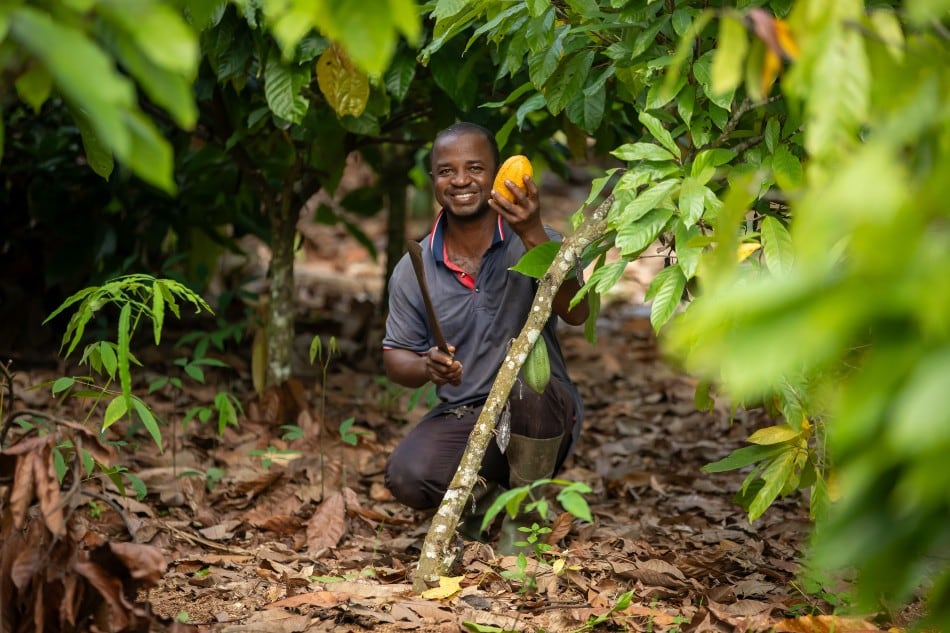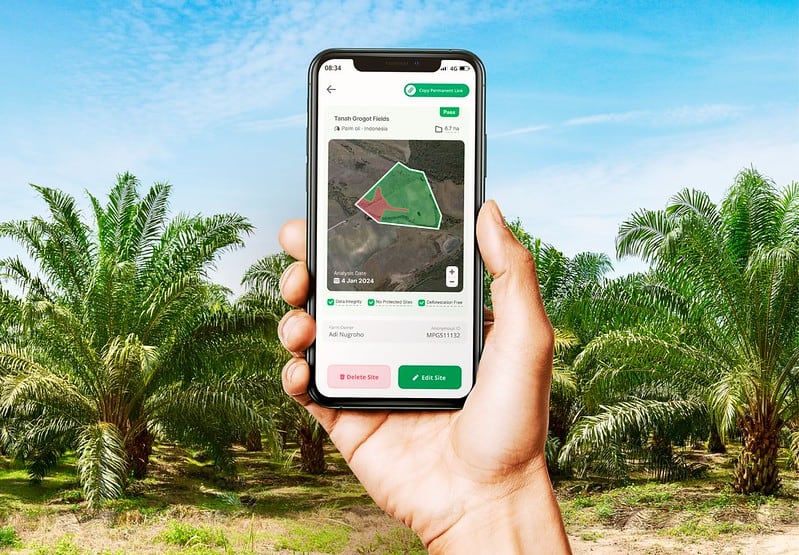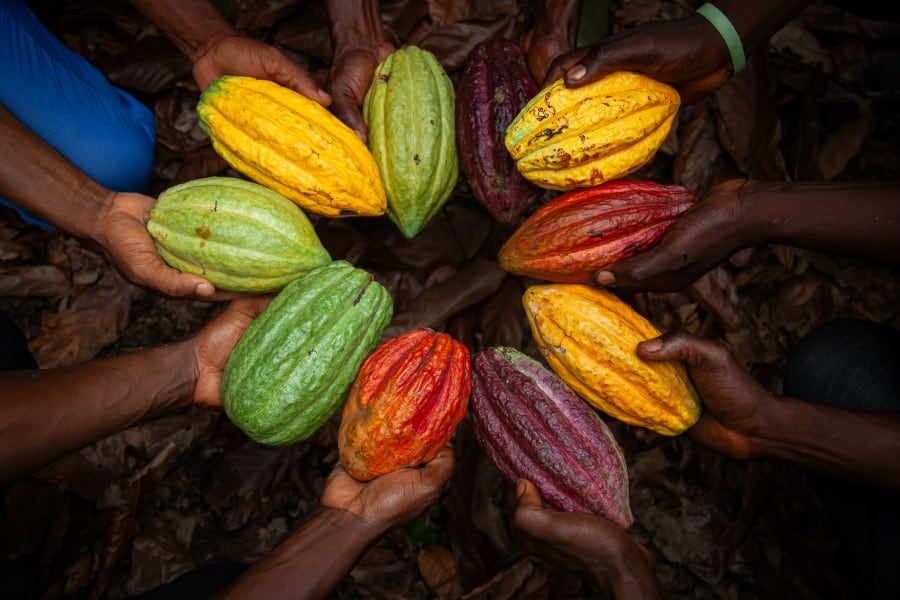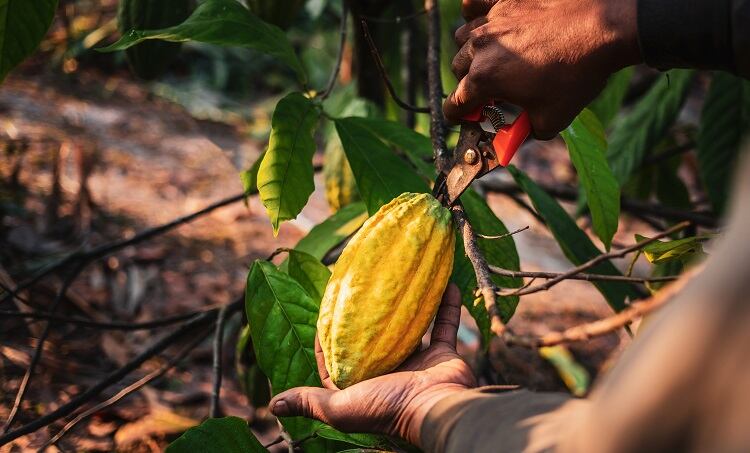In its upcoming Partnership Meeting programme, the World Cocoa Foundation (WCF) states: This is one of the shortest introductions of EU legislation ever. Many “unknowns” remain as the cocoa sector is venturing into unexplored territory. The WCF is organizing a special session, The Known Unknowns of the EUDR, on Tuesday 6 February to discuss some of them, such as; What needs to be done to formally import cocoa from older harvests that were stored in warehouses; and ‘Will certification by sustainability schemes such as the Rainforest Alliance, play a role in the due diligence process that is now mandatory’.
Two-tier cocoa market
Nicko Debenham, MD of Sustainability Solutions, who advises companies and organisations on sustainability, said there is a panic, and that cocoa is “under the kosh”, not just with deforestation issues but also child labour in its supply chain. “Almost 80% of the world’s cocoa ends up in the EU, so we have to make sure there is enough cocoa available from October 2024, that’s cocoa placed on the market before the deadline.
The regulation is so broad and requires the involvement of so many stakeholders. Will they have enough time? -- Dr Kristy Leissle
“I think there could be a two-tier market – compliant cocoa traded at a premium, which will be way higher than the cost of creating cocoa that is not compliant. Where is that [non-compliant] cocoa going to go?” he asked.
“There is only a 30-40% market it’s going to go to versus the 60% it will go to if it is compliant. That is why I believe there will be a premium for compliance versus noncompliance. Until the saturation is fully compliant, I don’t think the market will converge again.”
The EUDR, in its simplest form, is an EU directive ensuring that all products on the EU market and crossing into and out of the European Union comply with its new deforestation regulation, which dictates that products containing any of the seven deforestation-risk commodities, including coffee, cocoa, palm oil, and beef, must prove they do not originate from land deforested after 31 December 2020. Operators must obtain certification to ensure their products comply with the regulation.
There is a provision within the new law for small and medium enterprises (SMEs) to extend the period to 30 June 2025. The EU states that small undertakings have an average of 50 employees and a net turnover of €8m and micro undertakings have an average of 10 employees and a net turnover of €700k.
Small-holder cocoa farmers
Dr Kristy Leissle, a member of CN's editorial board and the founder and CEO of African Cocoa Marketplace, said it was vital that it should not be just on the environment when carrying out any risk assessments. “Small-holder cocoa farmers are being scrutinized like never before, and there is a high level of fear or concern as they are being forced to engage on a technical level with operators to ensure their farms are not in protected areas.
“This is not something the farmers have initiated or necessarily taken into account,” she said. Leissle fears that there could be a mismatch between the compliance the EUDR is insisting on being used with the reality on the ground.
Almost 80% of the world’s cocoa ends up in the EU, so we have to make sure there is enough cocoa available from October 2024, that’s cocoa placed on the market before the deadline -- Nicko Debenham
“How effective will the EUDR be in solving the problem of protecting the forests etc, … there is a risk of a negative impact. Forest land being converted to agricultural land is the EU definition of deforestation – but how do you measure that?”
She said that, while welcoming the measures to halt deforestation, the legislation had not been built from the farmers’ point of view. “There are many reasons they remove trees, because of disease, for example, commercial reasons, or even spiritual reasons - this is not how the legislation is structured … it is not taking a ground-up view of how farmers work with trees.”
Certifications
Christoph Eisenbeiss, the head of Certifications at European organic processors and importers Pronatec, also flagged an issue with the EUDR on the rights of indigenous people.
“Pronatec is an organic company – we mitigate the deforestation risk, so we have a head start, with certifications in place; our cocoa has full traceability from the farm base, required by organic legislation."
He said the company focuses on organic products and creating long-lasting partnerships. It sources directly from the cooperatives, and it works closely with farmers.
He said the vast amount of administration already in place without EUDR compliance could create a bottleneck as the producers invest considerable time and resources on all the paperwork.
“There is also a delicate issue surrounding indigenous groups. We source some of our cocoa from Peru, and there are privacy concerns regarding inspectors entering their homes.”
Debenham said the challenges are enormous for companies – and the only way to do it is to get on the ground and start due diligence, which means a modular approach to farmer base through aggregates. “Enable and empower them to do the data collection and the mapping. Get out on the ground and get on with it.”
He said the criteria for companies or cocoa traders are very clear: “If the farm is in a protected area, you don’t buy from that farm.”
Debenham also defined an ‘operator’ as a liable party or person in possession of the product when placed on the market or making it available for the market – but he thought the clever part of the EUDR regulation is that it is only regulating the top tier, but making that top tier regulate everyone below them in the supply chain.
There is also a delicate issue surrounding indigenous groups ... privacy concerns regarding inspectors entering their homes -- Christoph Eisenbeiss
In his experience, he estimated that 30% of the data collected needs to be better for due diligence, and operators need clean data with a full risk assessment that identifies mitigation if the cocoa has been sourced from a high-risk area. “Otherwise, he said, “you will have to go back and collect it.”
Debenham also advised that operators should already be collecting data in time for the main crop in October 2024, which will enter the market at the end of the year.
Eisenbeiss advised that operators use publicly available satellite sources like Forest Watch to do checks, “but there are many solutions out there – I think companies at our level need to think about partnering with organisations and solution providers.”
Leissle, who said she has a team in place and is working on a new platform to help small-holder farmers with EUDR compliance, said it is important to share any revenue through compliance modelling and that small holders should not pay a penny.
“Instances of gross negligence are next to none; they [the farmers] are doing their best, doing excellent work, but nobody has all of the specialized skills needed for compliance - the regulation is so broad and requires the involvement of so many stakeholders. Will they have enough time?” she queried.
- Both Debenham and Leissle will be attending Amsterdam Cocoa Week (5 to 9 February 2024), where they will discuss the EUDR and broader issues on cocoa sustainability at two major conferences: the World Cocoa Foundation Partnership Meeting and the Chocoa Sustainability Conference. See programme for details.
- Free download webinar download: Time’s up: new European Union Deforestation Regulation (EUDR) comes into force at the end of 2024 - how ready is cocoa?




